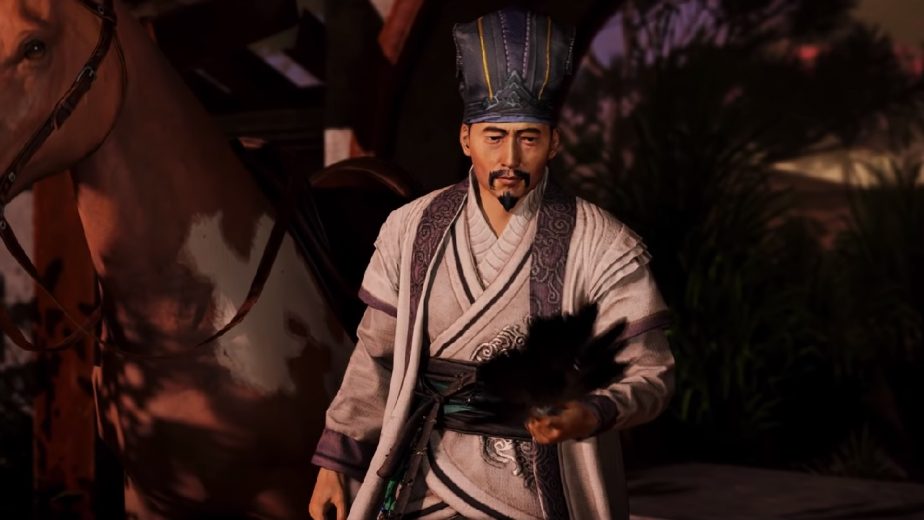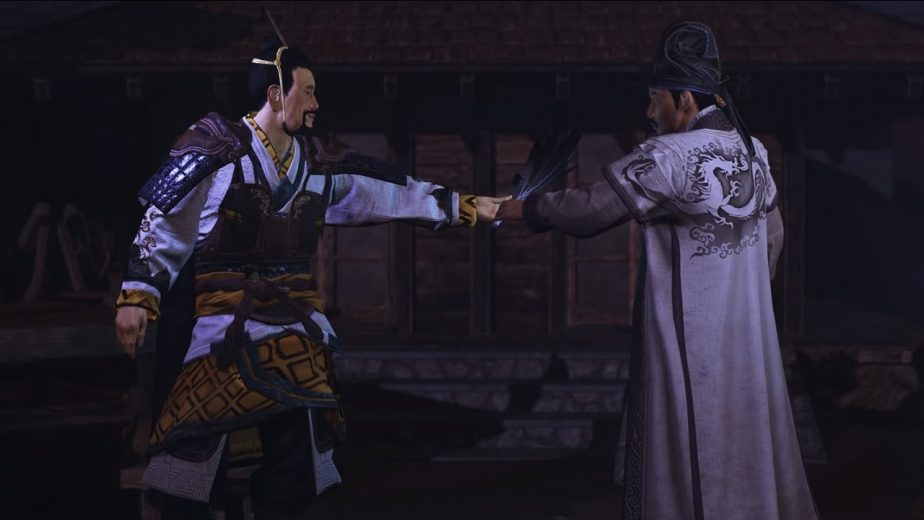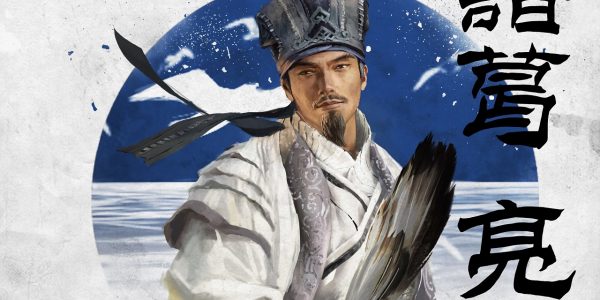There are many famous heroes and leaders in the history of the Three Kingdoms era. However, among them all, there are only a few as famous as Zhuge Liang, the legendary strategist also known as Kongming and the “Sleeping Dragon”. As Liu Bei’s strategist, and later the chancellor of the kingdom of Shu Han, Zhuge Liang had enormous influence on the period. In Total War: Three Kingdoms, he is one of the most valuable and powerful characters in the game.
Total War: Three Kingdoms Heroes – Zhuge Liang
“Zhuge Liang is the Imperial Chancellor of the state of Shu,” explains Creative Assembly; “An incredibly shrewd strategist and accomplished scholar, Zhuge Liang chose to join Liu Bei after seeing that he was a noble man of the people. Constantly thinking one step ahead, he remains calm and calculated.”

In addition to being one of the most famous individuals from the Three Kingdoms era, Zhuge Liang was a key character in the camp of Liu Bei, alongside heroes like Guan Yu, Zhang Fei, and Zhao Yun. In Total War: Three Kingdoms, Zhuge Liang is a Strategist. Although this means he won’t be a powerful frontline fighter, it does give him the ability to put his units into special formations and bolster his army’s military supplies. He also has easy access to ranged units and siege weapons.
Zhuge Liang’s Role and Special Abilities
Zhuge Liang does not feature in Total War: Three Kingdoms at the beginning of the game. Instead, if you play as Liu Bei, then there will be a series of story events which eventually give you the opportunity to recruit the Sleeping Dragon. These events mirror the three visits which Liu Bei made to Zhuge Liang’s home in the hope of recruiting him (see the story below). Once players do recruit Zhuge Liang, he begins play as a high-level Strategist with access to several special abilities. He also has a unique Legendary ancillary; his Feather Fan.
- Feather Fan: “With it, Zhuge Liang can feel the very pull of the elements.”
- Sight of the Dragon: “The enemy is located; the earth reveals them.”
- Stifling Deluge: “A suppressing aura that confounds the foe.”
- Way of the Wind: “Zhuge Liang predicts the wind through study of the world.”
Liu Bei Seeks the Sleeping Dragon…
According to Romance of the Three Kingdoms, Liu Bei first heard of Zhuge Liang from Xu Shu, another strategist who was serving him at the time. Xu Shu told Liu Bei that he would have to seek out Zhuge Liang himself, and so he set out with Guan Yu and Zhang Fei in order to find him. When they finally arrive at the thatched cottage where he lives, a servant tells them that his master isn’t at home.

The trio return a few days later, and though the servant initially tells them that the master is home, they discover that he means Zhuge Jun, Zhuge Liang’s younger brother. Despite the frustration of his sworn brothers, Liu Bei insists on visiting a third time. This time, Zhuge Liang is at home, but is asleep when Liu Bei arrives. After waiting for him to wake up, Liu Bei successfully persuades Zhuge Liang to serve as his strategist. Romance of the Three Kingdoms tells many tales of his legendary feats of strategy, although the historicity of some of these is questionable.
Unwavering Loyalty Until Death
After recruiting Zhuge Liang, Liu Bei quickly befriended the strategist. In the year 208, Liu Biao died and Cao Cao invaded his territory, whereupon his son immediately surrendered. Liu Bei, who had been serving Liu Biao at the time, fled south, and he sent Zhuge Liang ahead with Lu Su to negotiate an alliance with Sun Quan. With the support of Sun Quan’s own strategist, Zhou Yu, the Sun leader agreed to the alliance, setting the stage for the Battle of Red Cliffs. At this major conflict, Liu Bei and Sun Quan defeated Cao Cao’s forces.
Just a few years later, following Liu Bei’s war with Liu Zhang, Zhuge Liang had become Military Advisor General. When, in 221, Cao Cao’s son Cao Pi usurped Emperor Xian and named himself emperor, it was Zhuge Liang who persuaded Liu Bei to declare himself emperor and declare the formation of the kingdom of Shu Han. With this declaration, Zhuge Liang became the kingdom’s chancellor and head of the imperial secretariat. Unfortunately, Liu Bei passed away just a few years later, in early 223, following his defeat at the Battle of Xiaoting. As Liu Bei lay deathly ill, he called for Zhuge Liang. He asked him to aid his son, Liu Shan, but also said that he should take the throne himself if Liu Shan proved to be incompetent. Zhuge Liang promised that; “I’ll do my utmost and serve with unwavering loyalty until death.”

Zhuge Liang’s Southern Campaign and Northern Expeditions
As regent of Shu Han, Zhuge Liang launched his Southern Campaign to unify Shu in order to eventually attack the kingdom of Wei. In the south, Zhuge Liang repeatedly battled with the local Nanman tribes. However, on the advice of Ma Su, though he defeated the rebel Meng Huo seven times, he released him each time. Eventually, Meng Huo surrendered and pledged his allegiance to Shu. As a result, Zhuge Liang was able to make him governor of Nanzhong and ensure that the southlands of Shu would remain unified.
With Shu secure, Zhuge Liang launched his Northern Expeditions; a massive, full-scale attack against Wei. Five of these expeditions were launched in total. However, following several failures, he eventually met his nemesis Sima Yi at the Battle of Mount Qi. This battle proved to be costly on both sides and lasted over 100 days. After Sima Yi drove him back, Zhuge Liang returned in 234, and once again met Sima Yi at the Battle of Wuzhang Plains. Faced with another stalemate, Zhuge Liang fell ill and passed away. Although Sima Yi’s children would eventually conquer China, Zhuge Liang’s legacy was carried on for a time by Jiang Wei, a general who had been convinced to defect from Wei by Zhuge Liang during the Northern Expeditions.




